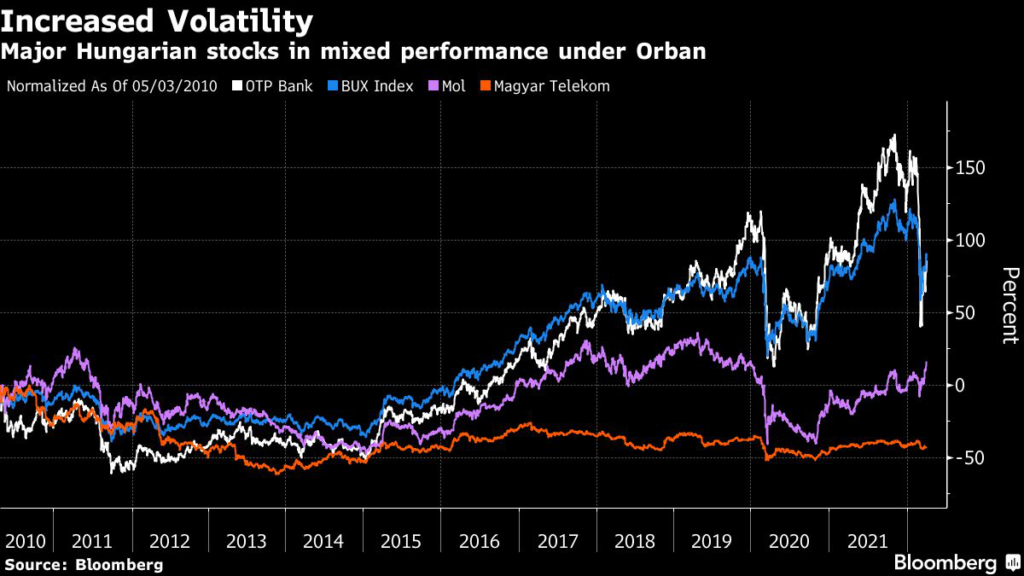(Bloomberg) — With Premier Viktor Orban tipped to win a fourth consecutive term in Sunday’s general election, stock investors in Hungary are already focusing on how he’ll fix the budget hole created to help his government stay in power.
Although politicians have been silent on the prospects of tax hikes or spending cuts, such moves “seem inevitable” following the ballot, according to Peter Oszlay, the chief investment officer at Erste Asset Management in Budapest. How they’re implemented will set the direction for equity valuations, he said.
Budapest stocks have been among the hardest hit by Russia’s invasion of neighboring Ukraine. In U.S. dollar terms, the BUX index is lagging emerging-market peers even after bouncing back in past weeks as Orban’s Fidesz party regained a lead over a coalition of six opposition groups.
The resurgence in opinion polls boosted expectations for a continuation of the status quo and reduced the risk of a potentially chaotic handover of power. Fidesz’s popularity has been fueled by a spending spree including nearly $2 billion in tax rebates for families, increases in pensions and public-sector wages.
For investors it’s clear that regardless of the election outcome, Hungary will need to reduce its budget deficit and that raising levies on corporations may be part of the solution.
“Whoever wins the elections will be in a situation of economic duress,” said Gabor Szocs, a senior portfolio manager at Hold Asset Manager. “There’s very little room for maneuver, with public finances between a rock and a hard place.”
Banking Proxy
OTP Bank Nyrt., with a 38% weight in the BUX index, has long been seen as a proxy investment bet on Hungary’s $156 billion economy. While the stock has bounced back since losing a third of its value in the week following Russia’s invasion of Ukraine, it may reverse gains, especially if the government embraces austerity.
“Painful steps” are needed, said Erste’s Oszlay. “Economic growth is likely to slow down significantly, which may create a headwind for all local stocks.”
Finance Minister Mihaly Varga has signaled the need to redo the budget after the election and downgraded this year’s economic outlook. In a boon for OTP, Hungary’s key interest rate is already the highest in the EU as inflation hit a 15-year-high of 8.3% in February, before the effects of the war fed into prices.
Orban Inc.
In power since 2010, Orban has gained sway over all facets of public administration as well as the broader economy, to the point where critics complain that competition is skewed in favor of Fidesz’s business allies.
Opus Global Nyrt., a conglomerate spanning finance, construction, tourism and banking, and 4iG Nyrt., an IT and telecom company, have been standout beneficiaries from Orban’s rule as they racked up government contracts and subsidies in addition to state aid and loans. These companies’ growth trajectories could suffer if the opposition somehow beats Fidesz on Sunday, Szocs said.
An opposition victory could prove messy with Orban’s party so entrenched in positions of power. It could, however, help Hungary access European Union recovery funds, which have been frozen due to a row over democratic standards.
“Foreign investors might become more relaxed if the new government would implement a more EU-friendly approach,” Oszlay said. “However, uncertainty would also be higher initially.”
More stories like this are available on bloomberg.com
©2022 Bloomberg L.P.











